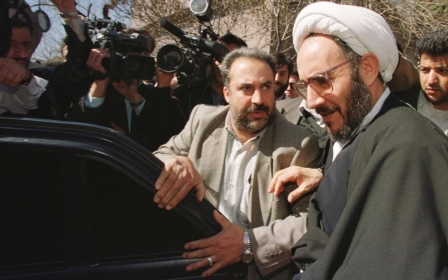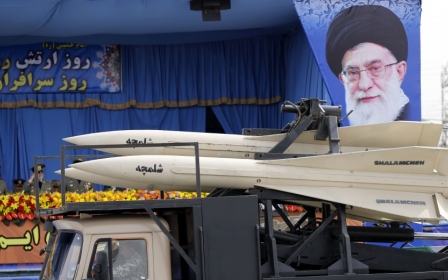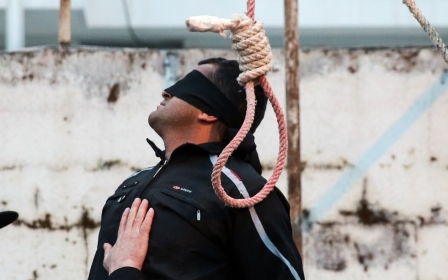Saudi expands foreign ties beyond traditional ally US

Saudi Arabia gave a royal welcome to France's Foreign Minister Laurent Fabius during a visit that highlighted a deepening of ties with major powers beyond traditional ally the United States.
The reinforcement of links with Paris comes as Riyadh worries over an Iran nuclear deal and fights a militia – reportedly backed by Tehran - in neighbouring Yemen.
Fabius, on his Saturday-Sunday visit, was welcomed more as a head of state than a minister, meeting the entire leadership of the kingdom.
"I'm not surprised, given the momentum that the relationship has taken in the last few years," said Asaad al-Shamlan, a political science professor at Riyadh's Institute of Diplomatic Studies.
Fabius met King Salman, Crown Prince Moqren, Deputy Crown Prince and Interior Minister Mohammed bin Nayef, along with the king's son Defence Minister Mohammed bin Salman, who leads the kingdom's war against Shiite Houthi militia in Yemen.
French military supplies to the kingdom have been ramped up in recent years. French arms sales for 2014 were pushed up thanks to Saudi Arabia financing of a $2.8bn contract on French arms deliveries in Lebanon, with 2015 also seeing $5.5bn-worth of orders from Egypt, indirectly financed by Gulf countries.
The French minister also held talks with Riyadh's veteran Foreign Minister Prince Saud al-Faisal.
Saud, who has nurtured growing ties with France in recent years, stressed at a joint press conference "the friendship and trust" between the two countries.
Fabius sought to reassure his hosts over a 2 April framework agreement between major powers and Iran to curb its nuclear ambitions, although Tehran insists its nuclear programme is peaceful.
In exchange for limits on Iran's nuclear capabilities, the accord would lift international sanctions.
A final deal is due to be reached by 30 June following further talks between Tehran and six major powers including France.
Extending Iranian ' influence in the region'
"There is panic among the Saudis because they think that Iran will use the newly available finances that a lifting of sanctions will bring (if a final accord is reached) to extend its influence in the region," said Joost Hiltermann of the International Crisis Group of analysts in Brussels.
Riyadh and Tehran are already divided over Syria, where Saudi Arabia backs Sunni-led rebels while Iran supports President Bashar al-Assad's forces.
Tensions between Iran and Saudi Arabia have risen further since 26 March when a Saudi-led coalition began airstrikes against Yemen's Shiite Houthi militia, who Riyadh says are supported by Tehran.
Iran has rejected accusations of arming the militiamen and its Supreme Leader Ayatollah Ali Khamenei has condemned the airstrikes as "criminal acts".
Fabius did not announce any military assistance for the Saudi-led coalition but said he came "to demonstrate our support, especially political".
Saudi Arabia fears that if too much of Iran's nuclear programme is left intact, Tehran will still have the ability to obtain an atomic bomb, and there are concerns that Riyadh could seek its own nuclear capability.
Analysts say Paris has taken a harder stance than Washington in the nuclear talks.
David Butter of London's Chatham House think tank said there are "clearly a lot of tensions in the relationship" between Riyadh and the United States, even if Washington remains the kingdom's primary military supplier and the two sides continue to work together.
Shamlan said that despite some strains the overall relationship between Saudi Arabia and the US is "very good".
"The value of the relationship is very much appreciated by both sides," he said, and a strengthening of ties with France or other countries does not come at the expense of links with the US.
"There's no contradiction between having a close relationship with the United States and having a close relationship with France or Britain and certainly with China," he said.
The kingdom's ties with Britain have been "growing tremendously" over the past 15 years on the back of defence deals, Shamlan added.
Stay informed with MEE's newsletters
Sign up to get the latest alerts, insights and analysis, starting with Turkey Unpacked
Middle East Eye delivers independent and unrivalled coverage and analysis of the Middle East, North Africa and beyond. To learn more about republishing this content and the associated fees, please fill out this form. More about MEE can be found here.




